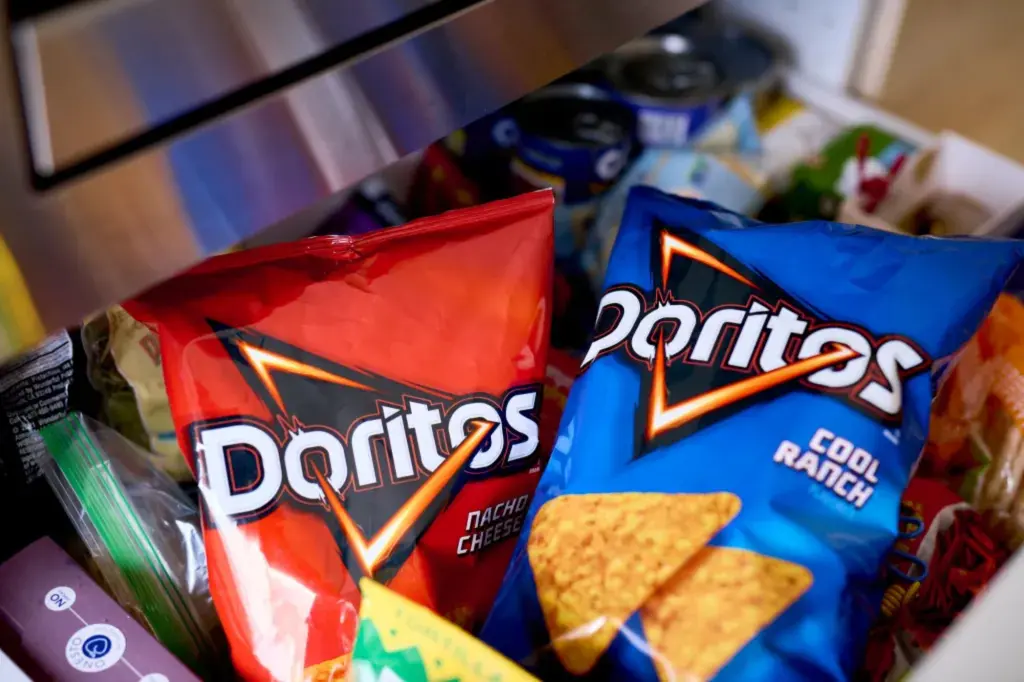Doritos and Cheetos to Get a Healthier Makeover as PepsiCo Eliminates Artificial Ingredients
America’s beloved snack food landscape is about to undergo a significant transformation as PepsiCo, the parent company behind iconic brands like Doritos and Cheetos, has announced plans to remove artificial flavors and colors from its products. This change comes as part of a broader industry shift toward healthier ingredients, sparked in part by the U.S. Department of Health and Human Services’ (HHS) April announcement that it would be working with food manufacturers to eliminate petroleum-based dyes from the American food supply by the end of next year. The initiative specifically targets synthetic dyes like Red 40, Yellow 5, and Yellow 6—all of which are currently found in Doritos Nacho Cheese, while Cheetos contains Yellow 6. These petroleum-based synthetic additives, originally manufactured from coal tar but now primarily derived from crude oil, have been the subject of increasing consumer concern and scientific scrutiny over their potential health impacts, particularly on children.
Health experts have welcomed this shift toward more natural ingredients. Board-certified dietitian nutritionist Kendall Mackintosh told Fox News Digital that these artificial additives have been linked to hyperactivity, inflammation, and oxidative stress. Her assessment is supported by scientific evidence—a review of 27 clinical trials found that approximately 64% of studies showed some evidence of behavioral issues in children linked to consuming artificial dyes, according to the California Office of Environmental Health Hazard Assessment. Mackintosh praised the move as following the “Make America Healthy Again” initiative championed by Secretary Robert Kennedy Jr., emphasizing that “consumer demand is driving this shift—when we stop buying these products, companies are forced to change.” While defenders of artificial colorings point out that these substances undergo rigorous testing to ensure they contain no traces of the original petroleum, many health-conscious consumers have increasingly sought out products with simpler, more recognizable ingredients.
PepsiCo’s announcement extends beyond just removing artificial ingredients. The company also revealed plans to introduce a new “protein-packed” line of Doritos, tapping into the growing consumer interest in protein-enriched snack options. Mackintosh acknowledged the potential benefits of added protein, noting that it “can help with satiety and muscle recovery,” but she also cautioned consumers to look beyond simple protein content claims. “Many of these products use isolated or processed protein sources, artificial flavorings, and additives,” she explained, advising consumers to check for ingredient quality and preferring “whole-food protein sources… especially organic plant and grass-fed animal proteins.” This perspective was echoed by registered dietitian Erin Palinski-Wade, who previously told Fox News Digital that adequate protein intake—around 20 to 30 grams per meal or 20-25% of total daily calories—can help people feel fuller for longer periods.
The company’s healthier direction doesn’t stop with protein addition and artificial ingredient removal. PepsiCo also shared plans to expand the use of avocado and olive oil in select products, ingredients widely recognized for their healthier fat profiles and potential nutritional benefits. These changes suggest a comprehensive rethinking of formulations across the company’s snack portfolio, potentially signaling a new era in how major food corporations approach product development. The company has committed that all of its core Lay’s products in the U.S. will be made without artificial flavors or colors from artificial sources by the end of 2025, establishing a clear timeline for these significant formula changes.
This reformulation of some of America’s most popular snack foods represents more than just a recipe change—it reflects a fundamental shift in the relationship between consumers, food manufacturers, and regulatory agencies. As public awareness about food ingredients grows, driven by increased access to nutritional information and health research, major companies like PepsiCo are responding to changing market demands. The move away from artificial ingredients in such mainstream, widely consumed products could potentially influence industry standards more broadly, encouraging other manufacturers to follow suit. It also highlights the power of consumer choice in driving corporate decision-making, with purchases increasingly serving as votes for the kinds of food systems and ingredients people want to support.
While these changes represent significant progress toward more natural food offerings, they also raise questions about the future landscape of convenience foods. Can beloved snacks maintain their characteristic flavors, textures, and shelf-stability while using more natural ingredients? Will consumers notice differences in their favorite products, and if so, will they embrace these changes? As PepsiCo implements these reformulations across its product lines through 2025, the answers to these questions will become clearer. What is certain is that this move represents one of the most significant shifts in mainstream snack food formulation in recent decades, potentially redefining what consumers expect from convenient, ready-to-eat products. As artificial ingredients are phased out of these iconic snack foods, we may be witnessing the beginning of a new chapter in American food culture—one where even indulgent treats are expected to meet higher standards for ingredient quality and transparency.


